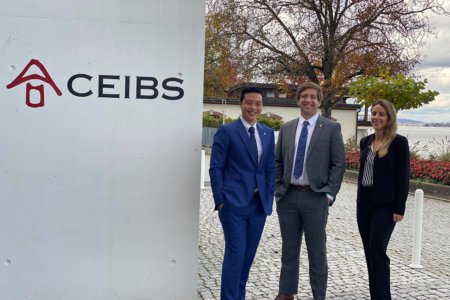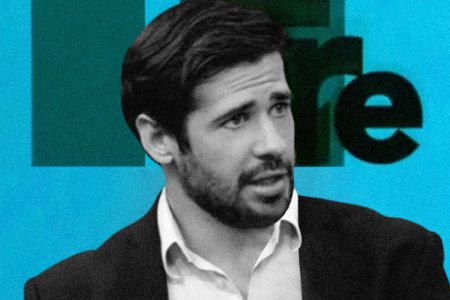
It all started with a passion for … ceramics. Schwin Chiaravanont, 29, first applied to University of North Carolina at Chapel Hill to pursue an arts degree in this. The search proved mistaken — what he really wanted to do was to find ways to help people. To do that, he would need money, his family said.
Chiaravanont may be part of a family that owns the conglomerate Charoen Pokphand Group (CP Group), Thailand’s largest private company and was ranked as Asia’s fourth-wealthiest family in 2017. Still, they advised him to learn more by going to business school. His uncles, Soopakij Chearavanont and Suphachai Chearavanont, went to New York University College of Business and Public Administration and Boston University, respectively.
“It so happened that Kenan-Flagler at the time was the sixth best-ranked undergrad business school programme in the US. I gave it a shot and luckily got in (it was a very competitive process and I didn’t think I could get in),” Chiaravanont tells us in an email interview. Today, he’s co-founder of independently managed multi-family office Blueprint Forest Group and a man with a mission. Chiaravanont wants to democratise business across Southeast Asia, a region plagued by poor governance and rampant corruption.
How? Through efficient capital allocation. Chiaravanont hopes to allocate funds to the best-run businesses, with no constraints to placate dominant business and political groups. We caught up with him to learn more about this and how his international education shaped him to be the investor he is today:
Tell us more about your career trajectory since graduating from Kenan-Flager Business School.
I have a very entrepreneurial nature and am also very passionate about finance. I attempted to launch two startups, one during my time at Kenan-Flagler and one after I graduated. I refused and never wanted to join a large corporation. Eventually, when my partners couldn’t continue working full-time on our ideas, we lost momentum. I caved to my parent’s demands and did a short stint at CLSA covering banks and telecoms in Thailand. I hated forecasting what others did without the ability to take action.
During my stint at CLSA, I was introduced to a company called Catapult Group International prior to its IPO. I spent a couple of months convincing various members of my family to invest and luckily was able to get their support for my first investment. We made five times in returns in two years, which gave the family more confidence to allocate more and more capital to deals I wanted to invest in, eventually enabling me to set up the full-fledged family office. Other friends and family members asked to co-invest, and I eventually set up fund structures to facilitate this.

Schwin Chiaravanont co-founded 9 Basil, the Southeast Asia-focused investment arm of Bangkok-based Blueprint Forest. Source: Mladen Antonov/AFP
9 Basil — a private equity fund you co-founded — aims to “allocate funds to the best-run businesses in an environment that has been constrained by dominant business and political groups.” How have the knowledge and skills you gained from the Kenan-Flager Business School helped you in this aspect?
In general, education in the US was very principled on “equal opportunity” and “systems of meritocracy.” While I do not believe this exists anywhere in its entirety, my entrepreneurial spirit and idealistic beliefs fostered hope that we too could help level the playing field by simply being another alternative in the market as an independent capital allocator. We believe some people do want to be aligned with certain groups in the market, but by simply having another independent option out there to facilitate people pursuing their dreams. We believe it’s helpful in tilting the landscape.
What were the practical learning elements in your course? Do you get to apply the lessons you gained from these experiences in your current job role? If yes, please provide a specific example.
Kenan-Flagler was all about practical knowledge. I was extremely surprised about the applicability of everything that they taught — from people who’ve done it before! I was totally inspired to learn while I was there. I completed two majors: economics and business administration. I completed two business emphases: entrepreneurship and corporate finance. I was just shy of completing another in marketing. I took so many courses (seven to eight per semester) and was warned by the university that I may have had to pay extra as I exceeded the credit limit. It’s really hard to pinpoint a specific example as everything I learned has been applied from how I source deals, evaluate opportunities, technical skills in excel and PowerPoint, presentations, presenting anything, and so forth.
What skills or knowledge do you wish you had learned more during university? Why?
Computer science. Every industry is being transformed by technology and understanding the technicalities can prove to be an edge.
In your opinion, what are the challenges COVID-19 have posed to entrepreneurs? What long-term impact would this pose on the enterprise scene in the region? How can business schools prepare students for this
COVID is just another very hard test. Business models need to be built with resilience in mind since day one. If not COVID, there will be another “once in a century” crisis every five to 10 years hitting your business. The world is simply unpredictable. Good to learn about your areas of weakness earlier rather than later.

“COVID is just another very hard test,” says Schwin Chiaravanont. Source: Spencer Platt/Getty Images/AFP
Economic corruption is a deeply entrenched problem throughout Southeast Asia. In your opinion, what is the top factor that sustains it and how does Blueprint Forest Group — another company you founded — plan to solve this?
It’s a deeply embedded issue and not something a small group like ours could solve ourselves. We do our part by not participating in and hope our performance as a clean business operating with great governance and allocating capital under a system of meritocracy will help inspire others like Buffett and Munger have inspired me and my partners. Buffett and Munger inspired me to pursue business and finance. I always had a very negative image of business. After reading their biographies, I was totally inspired.
You could build one of the world’s most successful businesses and the best long-term investment track record by simply focusing on the merits of business and their underlying management while upholding the best of values. They have upheld aspiring values that everyone should and could appreciate and respect. Even having accumulated such wealth they have maintained every bit of their values and remained frugal — they are inspiring not just as businessmen, but even as people. We hope to inspire others as they have with us.










